Experiential Education in Action
Experiential Education in Action workshops are a signature part of the ISEEN Winter Institute. They provide a unique opportunity for participants to be “students for the day” and immerse themselves in place-based experiential learning led by the educators through ISEEN’s partners.
Level of Physical Difficulty Descriptions:
- Easy: These workshops involve some physical activity, but they will be accessible, relaxed and include less than 2 miles of walking throughout the entirety of the workshop.
- Moderate: These workshops will involve some physical activity, but should be moderately accessible with little to no rock scrambles or elevation. They may include up to 4 miles of walking/hiking.
- Challenging: These workshops include a sustained, rigorous physical element and are designed to provide a meaningful challenge and may include more than 4 miles of hiking/biking.
Note: During registration, you will be asked to rank your top three Experiential Education in Action Workshop options. Read the descriptions carefully to ensure you understand the physical requirements. For outdoor activities, dress accordingly as the average temperatures for Baltimore during January is typically cold, with average high temperatures around 43°F (6°C) and average low temperatures around 26°F (-3°C).
1. Building Bridges: Designing Meaningful Partnership Programs for High School Volunteers
Friends School of Baltimore
Facilitator: Cristina Saenz de Tejada | Challenge Level: Easy
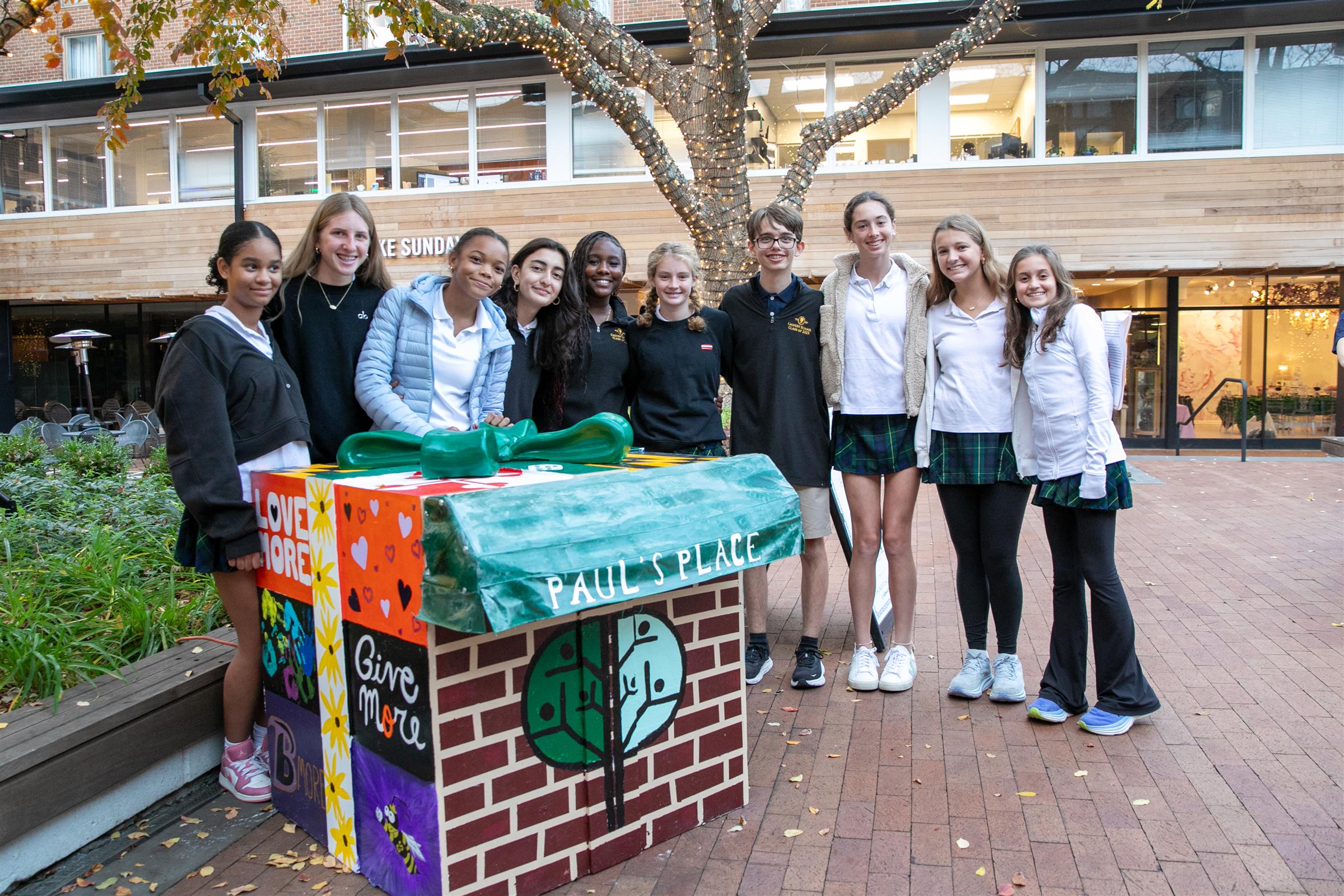 Creating a successful and lasting community partnership program requires thoughtful planning and adaptability to ensure meaningful benefits for both students and community partners. In this workshop, participants will explore how specific events in Baltimore City inspired the development of a collaborative community engagement program rooted in Quaker values of social justice, equity, and diversity, while honoring students’ interests and strengths. Participants will hear directly from students about their experiences and visit a community partner site, where they will engage in a project similar to the volunteer work our students regularly undertake. The session will conclude with the development of a template for designing mutually beneficial partnerships that align with student skills, school values, and community needs. Creating a successful and lasting community partnership program requires thoughtful planning and adaptability to ensure meaningful benefits for both students and community partners. In this workshop, participants will explore how specific events in Baltimore City inspired the development of a collaborative community engagement program rooted in Quaker values of social justice, equity, and diversity, while honoring students’ interests and strengths. Participants will hear directly from students about their experiences and visit a community partner site, where they will engage in a project similar to the volunteer work our students regularly undertake. The session will conclude with the development of a template for designing mutually beneficial partnerships that align with student skills, school values, and community needs.
Participants will be picked up at the hotel and transported 20 minutes to campus via activity bus.
Tags | Community Engagement, Service Learning, Social Justice, Design Thinking
2. From Roots to Real-World: Sustainability and Student-Centered Learning
Indian Creek School
Facilitators: Lindsey Seynhaeve, Sarah Allen, Jen Malachowski | Challenge Level: Moderate
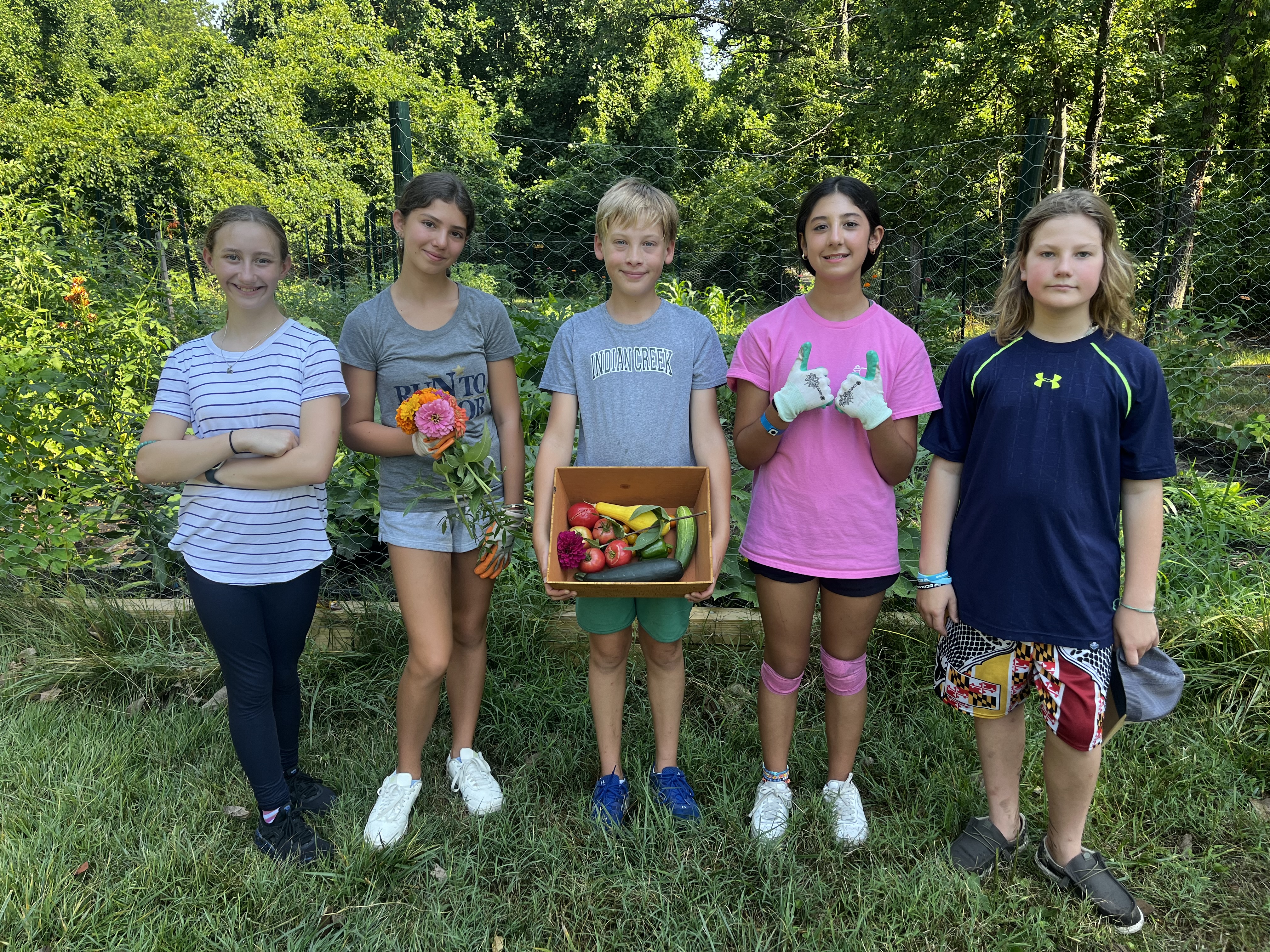 This immersive day invites educators to explore how nature-based and sustainability-focused learning fosters student agency, community impact, and interdisciplinary connections. The experience begins with a one-mile nature walk alongside Pre-K students on Indian Creek’s 114-acre campus, followed by a visit to the community garden to examine its role in food justice and belonging. Participants will engage in a hands-on Project-Based Learning (PBL) session, designing small-scale, eco-friendly food-growing systems. They'll view final student projects, participate in a Q&A with middle schoolers, and review a high school–led food audit by the Green Club. In the afternoon, educators will volunteer at a local food bank, putting learning into action. Be prepared for moderate physical activity, including lifting and standing. Throughout the day, facilitators will share ways schools can partner with local organizations to enrich curriculum and create community-connected, real-world learning experiences that inspire both students and educators. This immersive day invites educators to explore how nature-based and sustainability-focused learning fosters student agency, community impact, and interdisciplinary connections. The experience begins with a one-mile nature walk alongside Pre-K students on Indian Creek’s 114-acre campus, followed by a visit to the community garden to examine its role in food justice and belonging. Participants will engage in a hands-on Project-Based Learning (PBL) session, designing small-scale, eco-friendly food-growing systems. They'll view final student projects, participate in a Q&A with middle schoolers, and review a high school–led food audit by the Green Club. In the afternoon, educators will volunteer at a local food bank, putting learning into action. Be prepared for moderate physical activity, including lifting and standing. Throughout the day, facilitators will share ways schools can partner with local organizations to enrich curriculum and create community-connected, real-world learning experiences that inspire both students and educators.
Participants will be picked up at the hotel and transported 35 minutes to the Indian Creek campus via activity bus.
Tags | Community Engagement, Sustainability, Service Learning, Project-Based Learning / Design Thinking
3. Diverse Voices of Annapolis: A Walk Through Place and History
Key School
Facilitators: Jane Zanger, Sarah Judd | Challenge Level: Easy
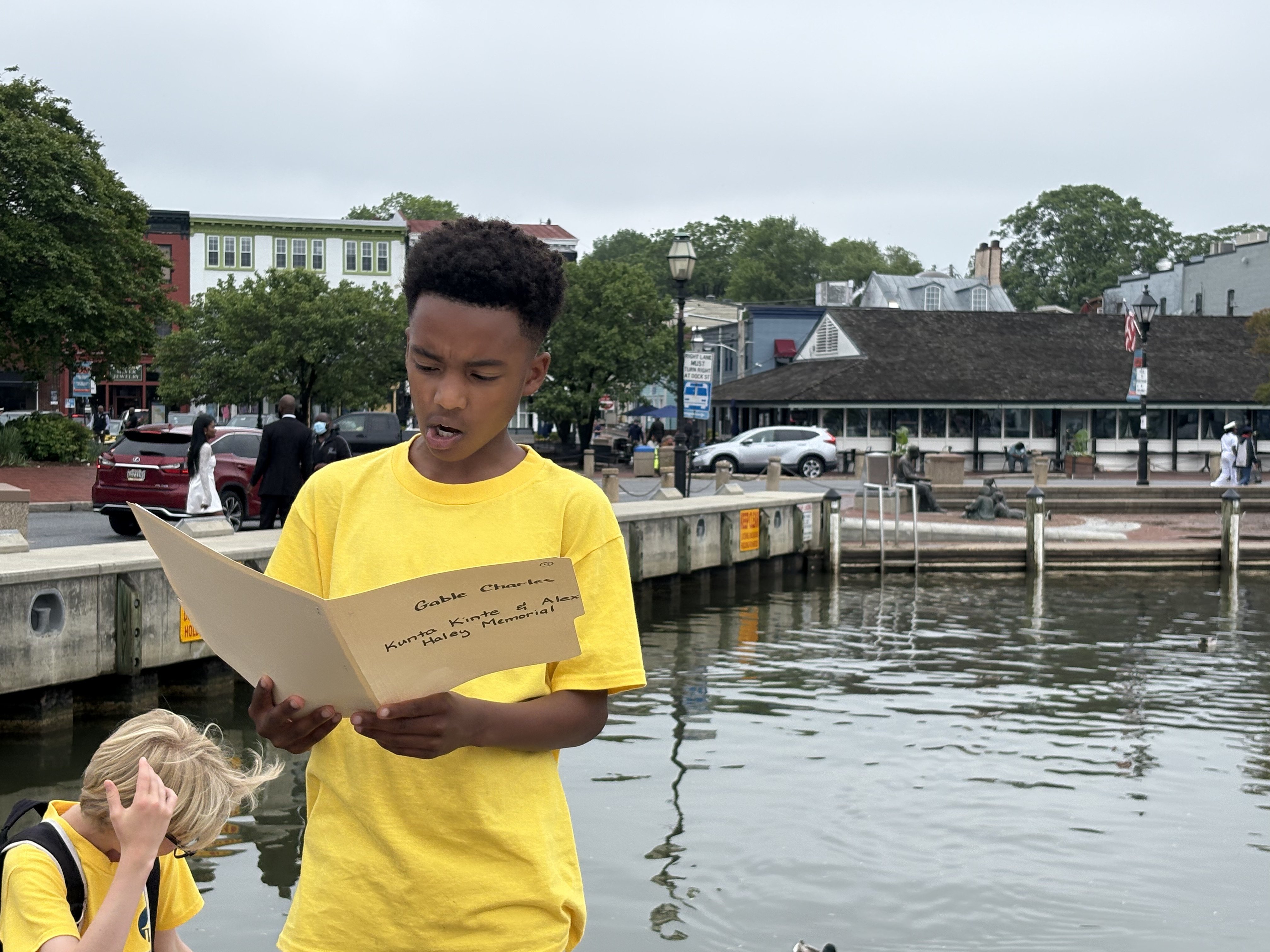 Participants will join Key School educators and student leaders on a walking tour of historic Annapolis, replicating an experiential project fifth grade students undertake each year. In their study of Annapolis, students learn about the distinctive Georgian architectural features still visible in Annapolis and about the lives of people who worked and lived in these still-standing buildings. Students consult both primary and secondary source material to research and write speeches about an assigned historical site, the various people associated with it throughout its history, and its present-day legacy in Annapolis. Participants will join Key School educators and student leaders on a walking tour of historic Annapolis, replicating an experiential project fifth grade students undertake each year. In their study of Annapolis, students learn about the distinctive Georgian architectural features still visible in Annapolis and about the lives of people who worked and lived in these still-standing buildings. Students consult both primary and secondary source material to research and write speeches about an assigned historical site, the various people associated with it throughout its history, and its present-day legacy in Annapolis.
Participants will develop an understanding of how our faculty have reworked and rethought a long-standing project through the lenses of social justice and anti-racism to help students build an understanding of place through the history of all the people who lived and worked in Annapolis during the colonial era.
Participants will be picked up at the hotel and transported 45 minutes to the Key School campus in Annapolis via activity bus.
Tags | Social Justice, History, Art, Architecture
4. From Legacy to Action: Cultivating Justice and Food Equity in Baltimore
Nobis Project
Facilitators: Heather DuCloux | Challenge Level: Moderate
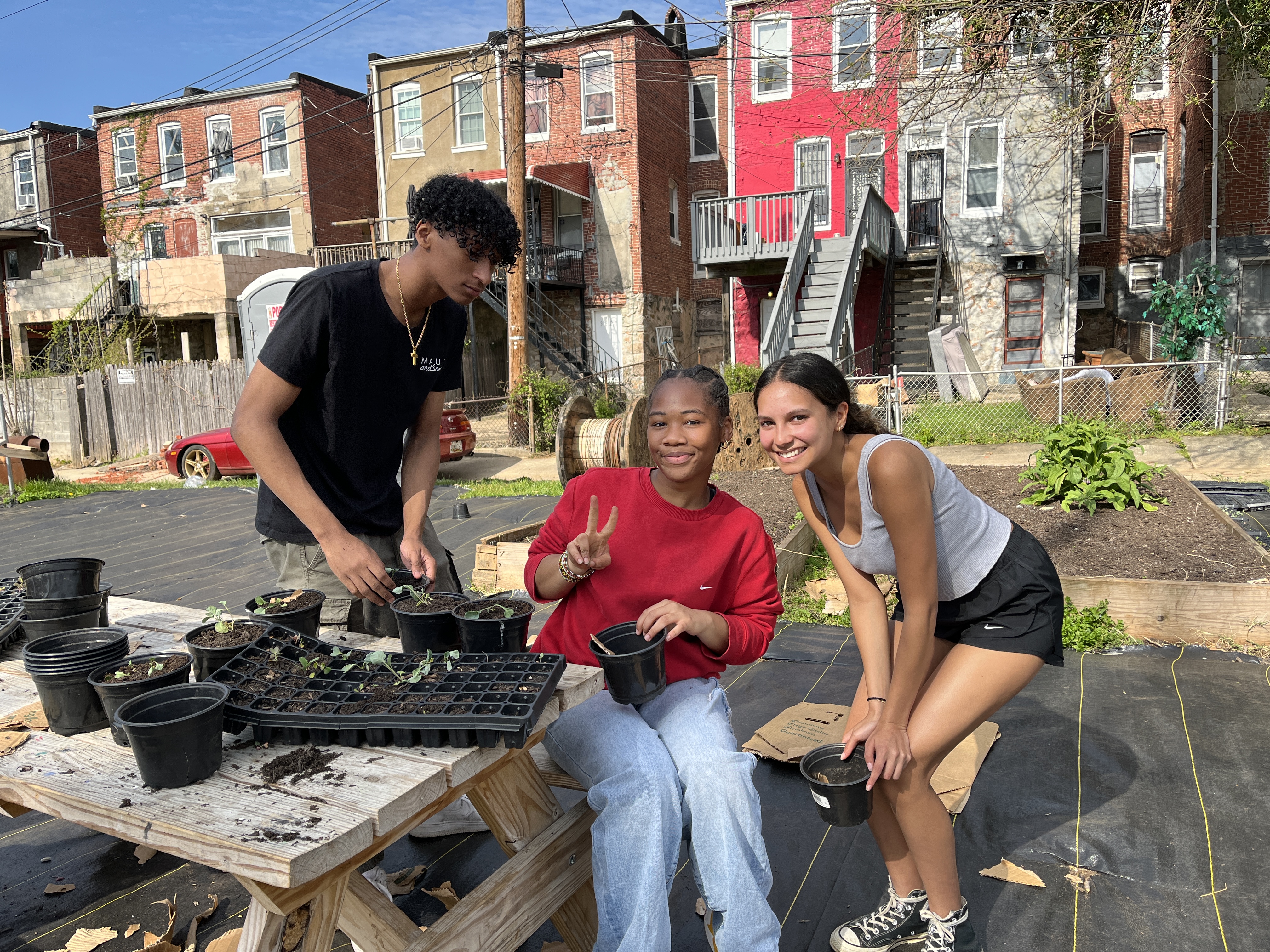 This day explores the powerful connection between historical civil rights struggles and contemporary efforts to build a more just and equitable Baltimore. We begin by delving into the legacy of NAACP leaders at the Lillie Carroll Jackson Civil Rights Museum, learning how their tireless fight against racial injustice shaped our nation. Then, we transition to present-day action at Plantation Park Heights Park Urban Farm, witnessing firsthand how community-driven initiatives are addressing food insecurity and fostering sustainable urban agriculture. Join us as we bridge the past and present, reflecting on how historical lessons inspire us to cultivate justice and food equity in our communities today. This day explores the powerful connection between historical civil rights struggles and contemporary efforts to build a more just and equitable Baltimore. We begin by delving into the legacy of NAACP leaders at the Lillie Carroll Jackson Civil Rights Museum, learning how their tireless fight against racial injustice shaped our nation. Then, we transition to present-day action at Plantation Park Heights Park Urban Farm, witnessing firsthand how community-driven initiatives are addressing food insecurity and fostering sustainable urban agriculture. Join us as we bridge the past and present, reflecting on how historical lessons inspire us to cultivate justice and food equity in our communities today.
This workshop will entail a moderate amount of walking and use public transportation to travel to various points of interest.
Tags | Community Engagement, Sustainability, Social Justice, History
5. Global Goals in Action: Experiential Strategies Through Play
Insight Global Education
Facilitators: Craig Vandermeer, Teghan Acres | Challenge Level: Easy
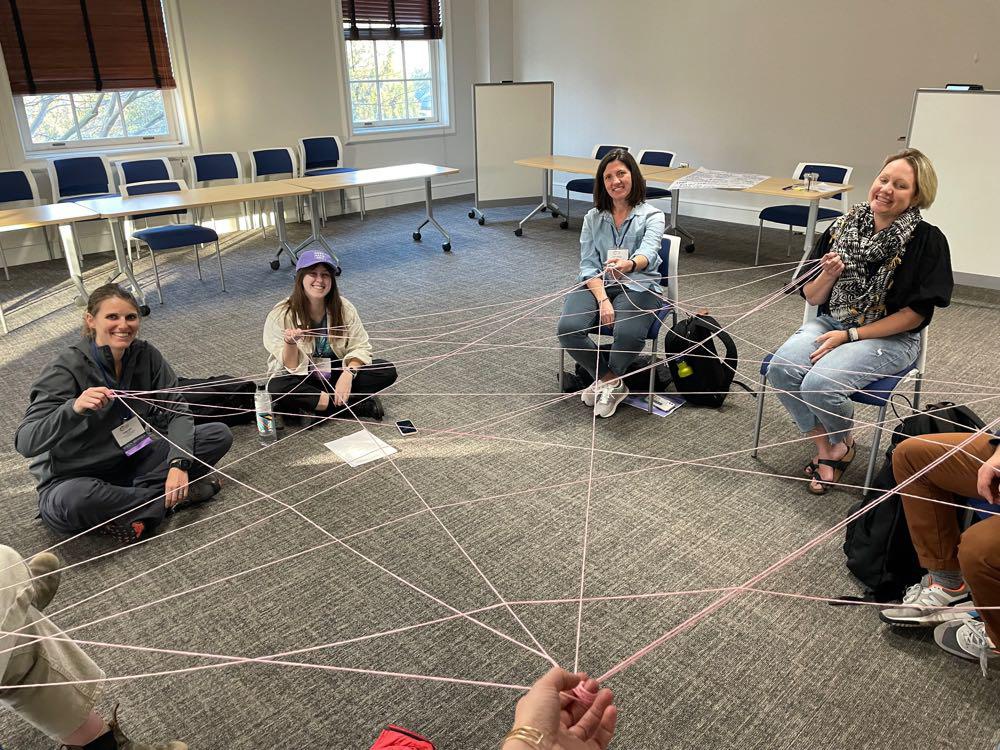 This hands-on seminar, framed within the UN Sustainable Development Goals (SDGs), features curricular driven games, simulations and exercises developed for students. Over the course of the day, participants will experience a variety of different methods of experiential, classroom focused games that explore issues in global citizenship, sustainability, and social justice. This hands-on seminar, framed within the UN Sustainable Development Goals (SDGs), features curricular driven games, simulations and exercises developed for students. Over the course of the day, participants will experience a variety of different methods of experiential, classroom focused games that explore issues in global citizenship, sustainability, and social justice.
We will focus on four of the UNs 17 SDGs, with emphasis on #1 - No Poverty, #3 - Good Health and Well Being, #9 - Industry, Innovation and Infrastructure and #13 - Climate Action. Each unit has an experiential, or game based component, as well as reflection prompts and discussion for classroom implementation and execution.
Educators participating will leave this seminar with valuable tools to be able to bring experiential practice into a variety of classroom settings, and will leave with a full curricular resource packet featuring 18 units, enabling teachers to implement lessons learned during this seminar, while also adapting material to suit their schools needs.
Tags | Sustainability, Global Studies/Citizenship, Discussion Practices, Team-building initiatives
6. Stitching Stories: Art, History, and Social Justice Through Fabric
Calvert School
Facilitators: Katie Leonard, Aden Knott | Challenge Level: Easy
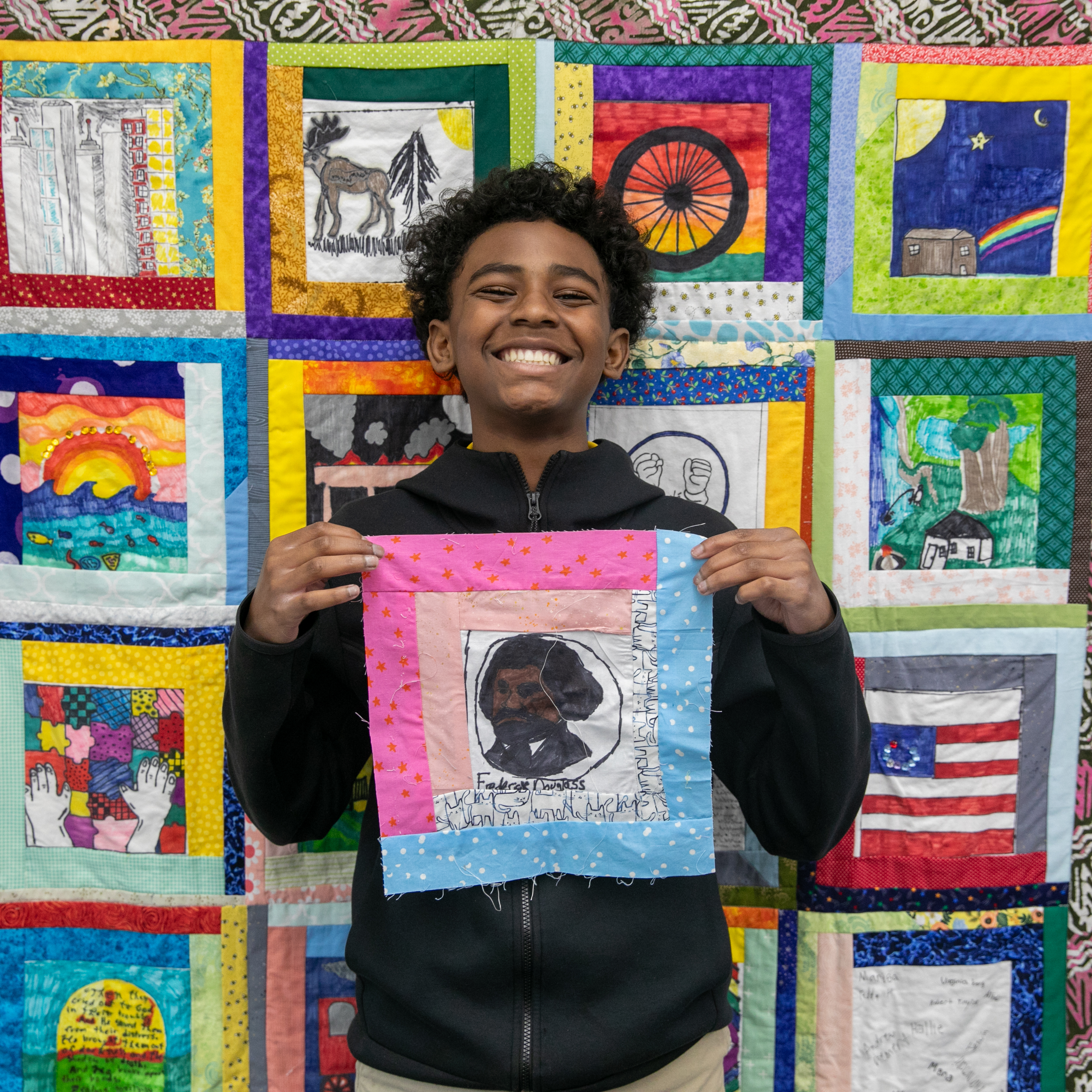 In this hands-on workshop, participants will explore the rich history of textile arts—especially quilting—as a form of storytelling and social justice. Rooted in Baltimore’s historical landscape, we’ll visit a local museum to engage with art that highlights the intersection of history and civic action. Participants will learn about quilting as a tool for resistance and community-building, then design and sew their own quilt square reflecting a social justice theme, which will be transformed into a personal tote bag or pillow. A student panel will share their 7th grade Freedom Quilt project, connecting abolitionist history to creative expression. The workshop includes time on sewing machines (no experience needed) and models how to integrate museum visits, historical inquiry, and hands-on artmaking into classroom practice. We’ll close with lunch from a local Black-owned restaurant and group reflection on how cross-disciplinary projects can deepen student engagement and elevate diverse narratives. In this hands-on workshop, participants will explore the rich history of textile arts—especially quilting—as a form of storytelling and social justice. Rooted in Baltimore’s historical landscape, we’ll visit a local museum to engage with art that highlights the intersection of history and civic action. Participants will learn about quilting as a tool for resistance and community-building, then design and sew their own quilt square reflecting a social justice theme, which will be transformed into a personal tote bag or pillow. A student panel will share their 7th grade Freedom Quilt project, connecting abolitionist history to creative expression. The workshop includes time on sewing machines (no experience needed) and models how to integrate museum visits, historical inquiry, and hands-on artmaking into classroom practice. We’ll close with lunch from a local Black-owned restaurant and group reflection on how cross-disciplinary projects can deepen student engagement and elevate diverse narratives.
Participants will be picked up at the hotel and transported 20 minutes to the Calvert School campus via activity bus.
Tags | Social Justice, Design Thinking/Maker Experiences, History, Fabric Arts/Textile Arts (Art)
7. Economic Empowerment: The Enduring Legacy of African American Achievement in the Face of Systemic Oppression
Nobis Project
Facilitators: Christen Clougherty | Challenge Level: Moderate
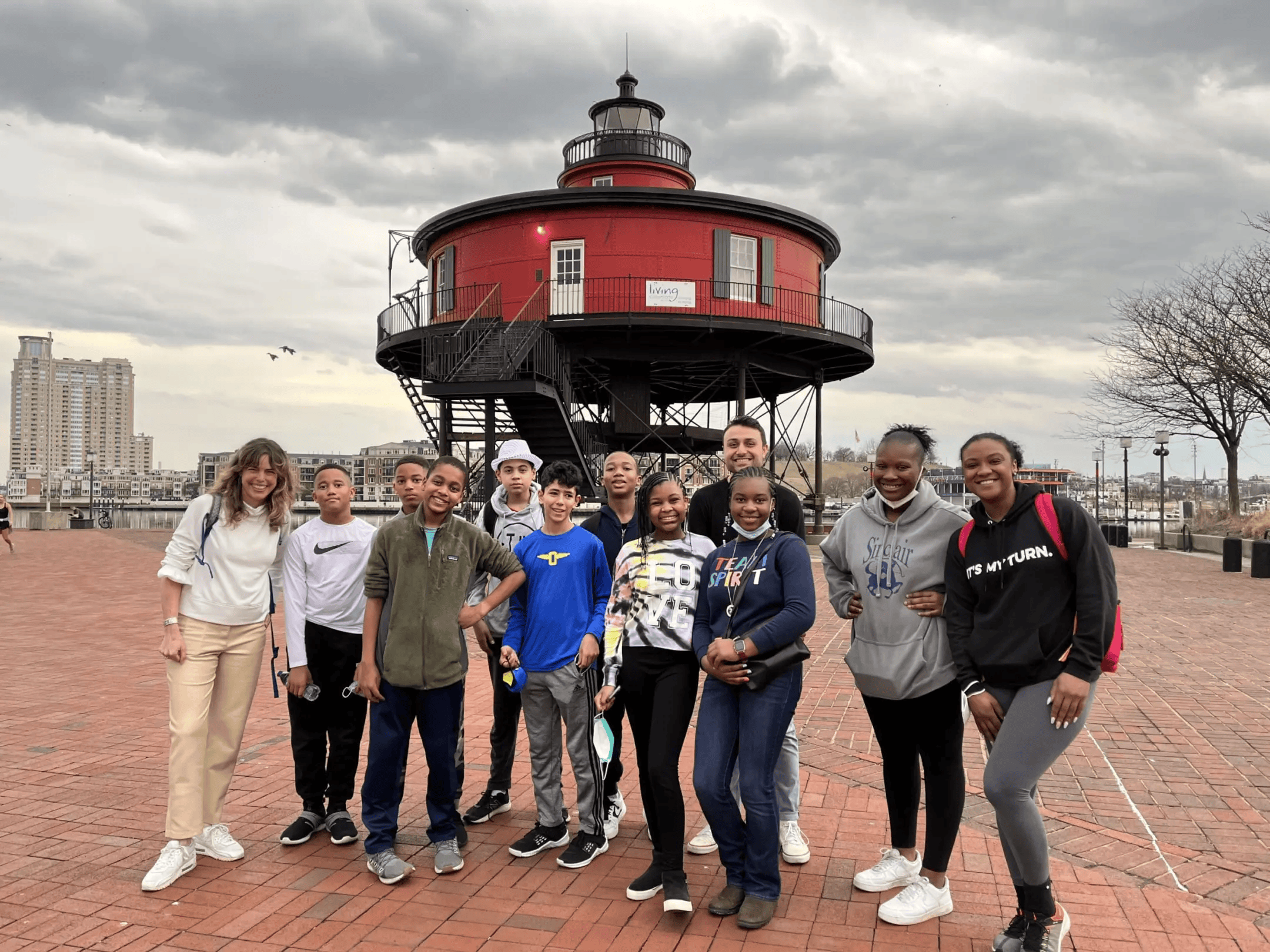 Join us for an immersive journey through Baltimore's rich African American history. This workshop delves into the stories of resilience, resistance, and economic empowerment that shaped the city with a visit to the Baltimore Museum of Industry. We'll explore the lives of individuals like Frederick Douglass and Isaac Myers, who triumphed over systemic oppression, and learn about the enduring legacy of institutions like The Afro-American newspaper. Through interactive discussions and a walking tour around historic Fells Point, we'll examine how African Americans navigated and challenged the complexities of pre-Civil War and post-Civil War America, leaving an indelible mark on Baltimore's industrial and cultural landscape. Discover how their struggles and triumphs continue to resonate today, inspiring us to build a more just and equitable future. Join us for an immersive journey through Baltimore's rich African American history. This workshop delves into the stories of resilience, resistance, and economic empowerment that shaped the city with a visit to the Baltimore Museum of Industry. We'll explore the lives of individuals like Frederick Douglass and Isaac Myers, who triumphed over systemic oppression, and learn about the enduring legacy of institutions like The Afro-American newspaper. Through interactive discussions and a walking tour around historic Fells Point, we'll examine how African Americans navigated and challenged the complexities of pre-Civil War and post-Civil War America, leaving an indelible mark on Baltimore's industrial and cultural landscape. Discover how their struggles and triumphs continue to resonate today, inspiring us to build a more just and equitable future.
This workshop will entail a significant amount of walking and a scenic Ferry ride.
Tags | Community Engagement, Global Studies/Citizenship, Social Justice, History
8. Connecting Classrooms and Landscapes: How Place Shapes Curriculum and How Curriculum Transforms Outdoor Experiences
Key School
Facilitators: Paul Bayne, Lee Zanger | Challenge Level: Moderate
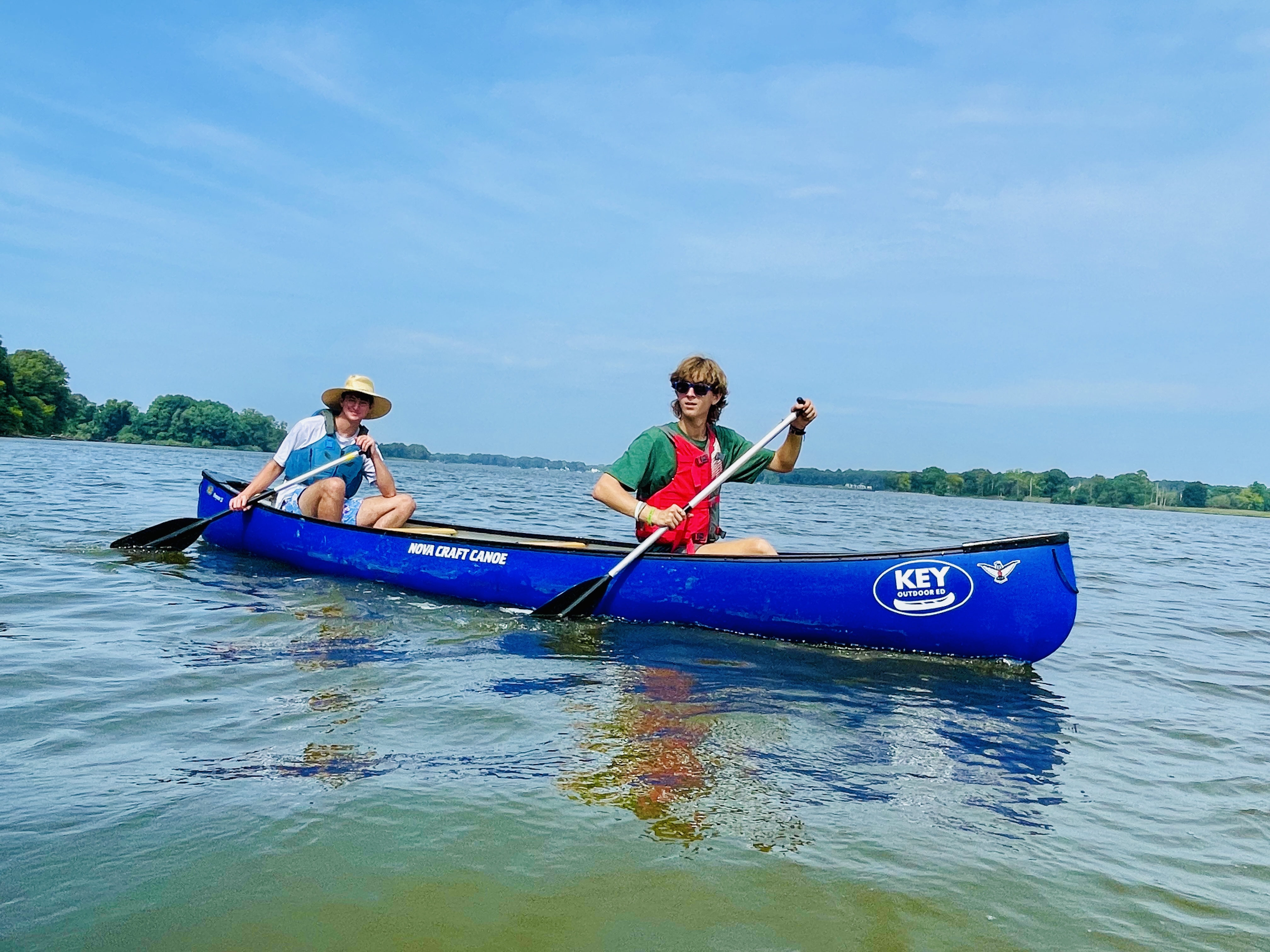 In this workshop, participants will learn how to design place-based and experiential learning opportunities by either building curriculum around a specific location or adapting existing classroom content for outdoor settings. Through an overview of Key School’s outdoor education model—including a high school multi-day trip and a middle school Lewis & Clark–themed day trip—educators will explore the process of aligning academic goals with meaningful, real-world experiences. The day includes research and planning time on campus, a guided off-campus trip, and lunch prepared by student leaders in the school’s outdoor kitchen. Be prepared for moderate physical activity, including lifting and standing. Participants will evaluate sample trips, engage in dialogue about teaching complex histories, and consider how to link their own curriculum to local resources or school traditions. You'll have time to reflect on your own curriculum, leaving with actionable ideas and a personalized plan to bring back to your school. One of the most valuable parts of this workshop is the opportunity to critically examine The Key School's experiences, pinpointing both strengths and deficiencies—giving you fresh insights to elevate your own approach. In this workshop, participants will learn how to design place-based and experiential learning opportunities by either building curriculum around a specific location or adapting existing classroom content for outdoor settings. Through an overview of Key School’s outdoor education model—including a high school multi-day trip and a middle school Lewis & Clark–themed day trip—educators will explore the process of aligning academic goals with meaningful, real-world experiences. The day includes research and planning time on campus, a guided off-campus trip, and lunch prepared by student leaders in the school’s outdoor kitchen. Be prepared for moderate physical activity, including lifting and standing. Participants will evaluate sample trips, engage in dialogue about teaching complex histories, and consider how to link their own curriculum to local resources or school traditions. You'll have time to reflect on your own curriculum, leaving with actionable ideas and a personalized plan to bring back to your school. One of the most valuable parts of this workshop is the opportunity to critically examine The Key School's experiences, pinpointing both strengths and deficiencies—giving you fresh insights to elevate your own approach.
Participants will be picked up at the hotel and transported 45 minutes to the Key School campus in Annapolis via activity bus.
Tags | Outdoor Education, History, Curriculum Design, Student Leadership
9. Initiatives and Questioning- A Meta Level Exploration
Chesapeake Bay Outward Bound School
Facilitators: Rachel Will, Kelly Reynolds | Challenge Level: Moderate
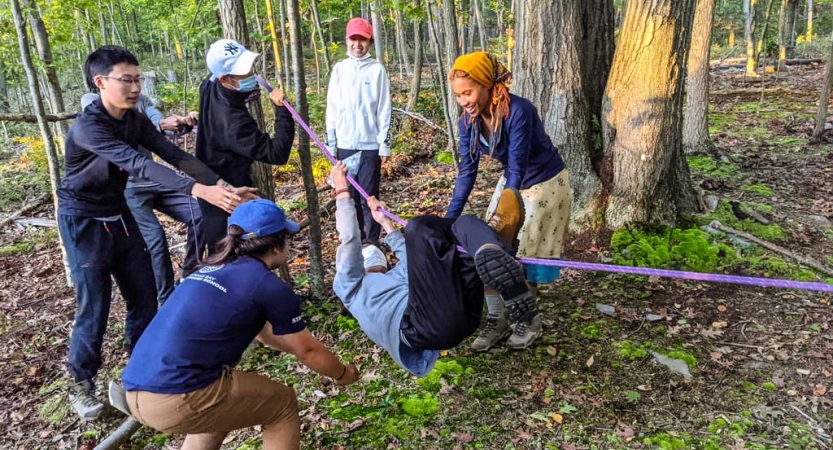 Questions. They’re so commonplace we often don’t even think about them. There are a lot of scenarios that require questioning and reflective discussion for students to get the most out of their learning experience. Questions give us insight into their learning moments and help us serve them better. Without questions, students may miss the opportunity to make meaning and transfer skills and perspectives from their learning. They can be used to build connections, foster meaningful conversation, and develop shared strategies in a decision-making process; all of these are important Social and Emotional skills that Outward Bounds aims to empower students with are foundational skills for community action and justice. Come join us for a day filled with hands-on initiatives, low element facilitation, and a hike in Leakin Park; in between our activities, we will dive into questioning theories to best support learning and reflection. Questions. They’re so commonplace we often don’t even think about them. There are a lot of scenarios that require questioning and reflective discussion for students to get the most out of their learning experience. Questions give us insight into their learning moments and help us serve them better. Without questions, students may miss the opportunity to make meaning and transfer skills and perspectives from their learning. They can be used to build connections, foster meaningful conversation, and develop shared strategies in a decision-making process; all of these are important Social and Emotional skills that Outward Bounds aims to empower students with are foundational skills for community action and justice. Come join us for a day filled with hands-on initiatives, low element facilitation, and a hike in Leakin Park; in between our activities, we will dive into questioning theories to best support learning and reflection.
Participants will be picked up at the hotel and transported 20 minutes to CBOBS’ Leakin Park campus via activity bus.
Tags | Outdoor Education, Discussion Practices, Philosophy, Team-building initiatives
10. Learning in the Wild: Experiential Education in Action at the Maryland Zoo
Calvert School
Facilitator: Wendy Faraone, Sean Donmoyer, Caroline Marris | Challenge Level: Easy
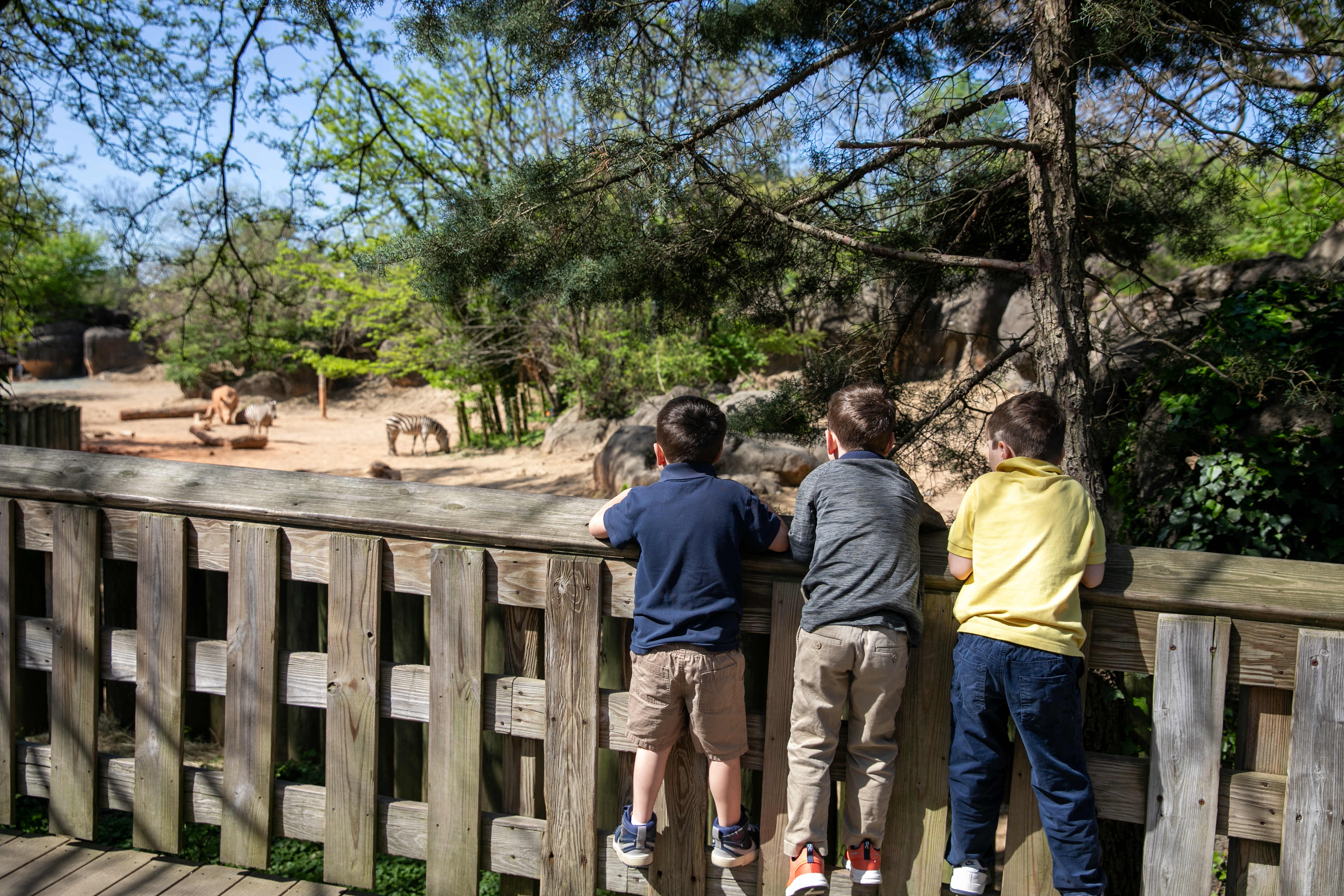 This immersive workshop, in partnership with the Maryland Zoo, offers educators a dynamic, hands-on experience designed to spark curiosity, foster critical thinking, and deepen environmental stewardship. Participants will engage in real-world challenges that highlight the connections between animals, humans, and ecosystems. Activities include using design thinking to create enrichment tools that support natural animal behaviors and solving zoo-based problems that reveal the complexities of animal care, operations, and sustainability. Educators will connect with zoo professionals—from conservationists to animal keepers—and explore behind-the-scenes spaces like the sustainability garden and animal commissary. The day concludes with a reflection session where participants build a toolkit of ideas and pitch collaborative strategies to bring back to their school communities. Centering problem solving, design thinking, and interdisciplinary learning, this workshop equips educators with both inspiration and practical tools to bring real-world, experiential learning into their classrooms. This immersive workshop, in partnership with the Maryland Zoo, offers educators a dynamic, hands-on experience designed to spark curiosity, foster critical thinking, and deepen environmental stewardship. Participants will engage in real-world challenges that highlight the connections between animals, humans, and ecosystems. Activities include using design thinking to create enrichment tools that support natural animal behaviors and solving zoo-based problems that reveal the complexities of animal care, operations, and sustainability. Educators will connect with zoo professionals—from conservationists to animal keepers—and explore behind-the-scenes spaces like the sustainability garden and animal commissary. The day concludes with a reflection session where participants build a toolkit of ideas and pitch collaborative strategies to bring back to their school communities. Centering problem solving, design thinking, and interdisciplinary learning, this workshop equips educators with both inspiration and practical tools to bring real-world, experiential learning into their classrooms.
Participants will be picked up at the hotel and transported 20 minutes to the Calvert School campus via activity bus.
Tags | Community Engagement, Sustainability, Ethical Leadership, Science
11. Risk Management for School Outdoor, International, and Immersive Program Leaders
NOLS
Facilitator: Senior NOLS Faculty | Challenge Level: Easy
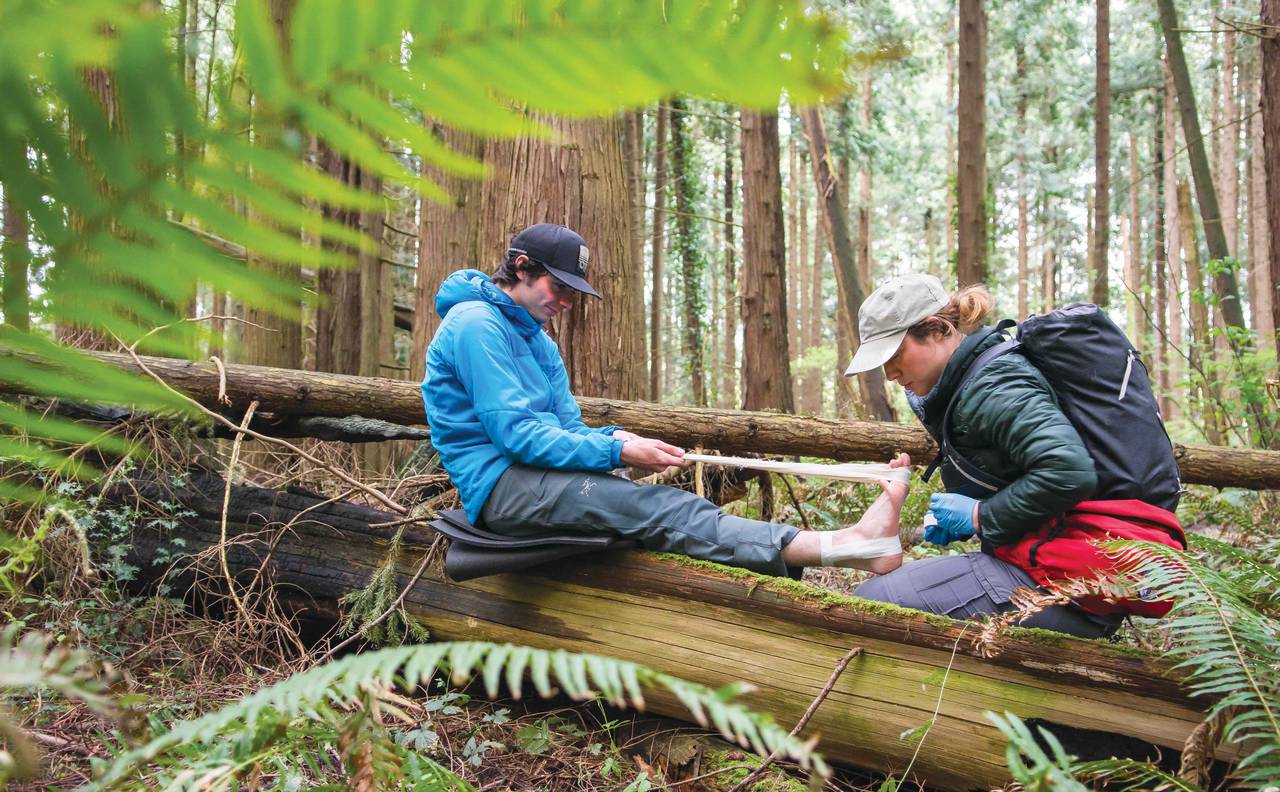 You have a responsibility to your faculty and students to invest in risk management planning, whether you are running international or wilderness trips, or planning immersive experiences closer to home. Building a comprehensive risk management plan can feel daunting and independent schools face unique needs. Through scenarios, exercises, and reflection work, this workshop will cover essential topics for any independent school running outdoor, international, or immersive programming and will help you identify next steps in developing your school's risk management plan. Topics include evaluating risks of an activity, determining how to manage those risks, and how to communicate those risks to your students, building a health review process to ensure students are ready to take on the rigors of wilderness or international travel or an immersive experience, evaluating your school's medical treatment plans for trips, how to evaluate subcontractors, and emergency and crisis planning. You have a responsibility to your faculty and students to invest in risk management planning, whether you are running international or wilderness trips, or planning immersive experiences closer to home. Building a comprehensive risk management plan can feel daunting and independent schools face unique needs. Through scenarios, exercises, and reflection work, this workshop will cover essential topics for any independent school running outdoor, international, or immersive programming and will help you identify next steps in developing your school's risk management plan. Topics include evaluating risks of an activity, determining how to manage those risks, and how to communicate those risks to your students, building a health review process to ensure students are ready to take on the rigors of wilderness or international travel or an immersive experience, evaluating your school's medical treatment plans for trips, how to evaluate subcontractors, and emergency and crisis planning.
This is an interactive, classroom-based workshop that will take place on-site with no transportation needed.
Tags | Outdoor Education, Global Studies/Citizenship, Risk Management
12. The City as a Canvas: Connecting Art, Place, and Purpose in Urban Spaces
Calvert School & Nobis Project
Facilitator: Staff from Calvert School & Nobis Project | Challenge Level: Easy
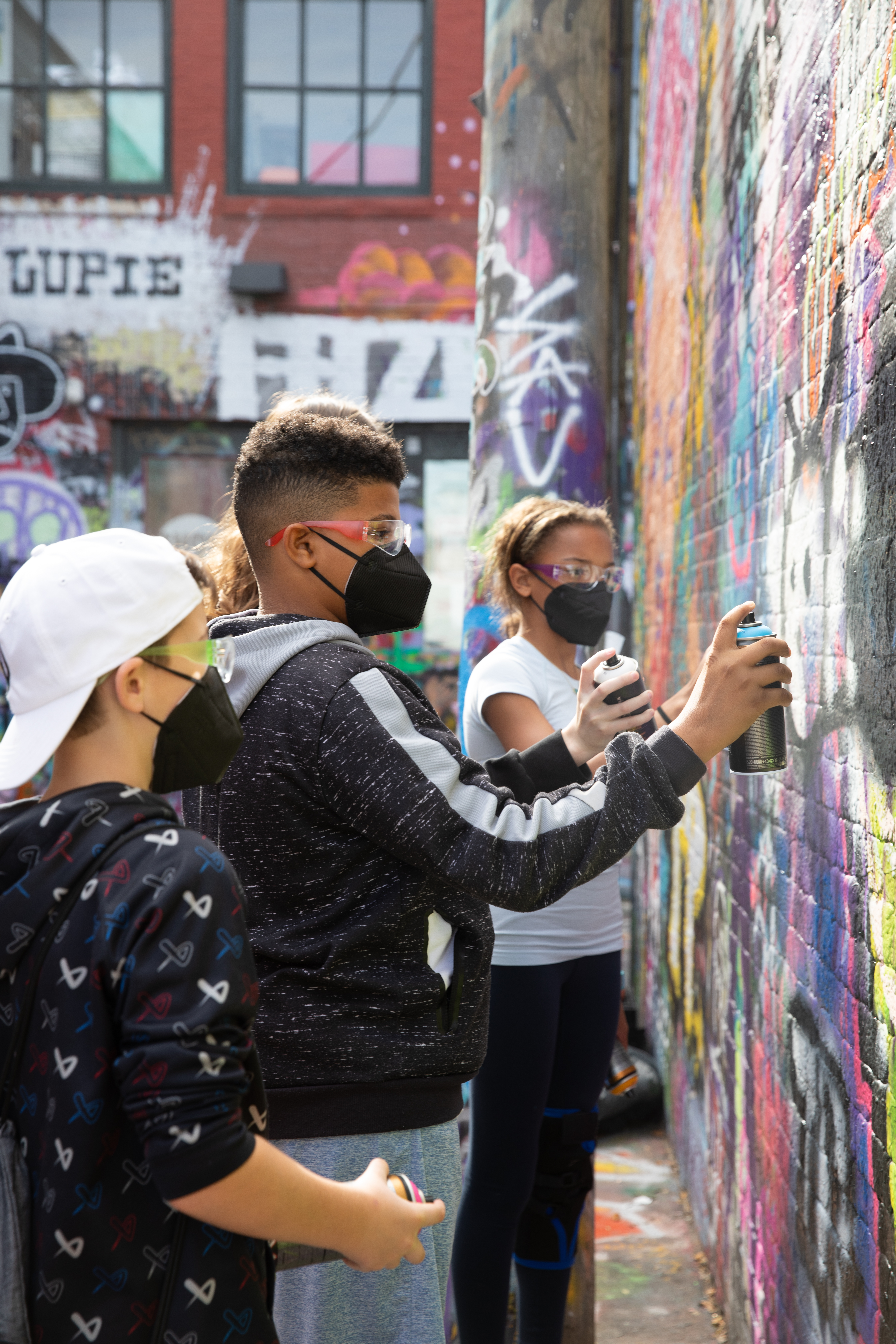 This immersive, street-level workshop invites educators to explore how murals and graffiti can serve as tools for storytelling, resistance, and community identity. Guided by the Nobis Project’s Big Ideas—History, Power, Relationships, Global Citizenship, and Cultural Responsiveness—participants will embark on a mural scavenger hunt through a Baltimore neighborhood, decoding visual narratives and reflecting on whose stories are told or missing. This immersive, street-level workshop invites educators to explore how murals and graffiti can serve as tools for storytelling, resistance, and community identity. Guided by the Nobis Project’s Big Ideas—History, Power, Relationships, Global Citizenship, and Cultural Responsiveness—participants will embark on a mural scavenger hunt through a Baltimore neighborhood, decoding visual narratives and reflecting on whose stories are told or missing.
After lunch in Fells Point, the group will visit Graffiti Alley and Station North to meet a local muralist and discuss the creative process, ethical considerations of public art, and how artists collaborate with communities to amplify underrepresented voices.
Through critical reflection strategies and interdisciplinary connections—art, civic education, and local history—participants will explore how to foster student agency, build relationships, and promote social justice. The day concludes with a creative reflection activity that explores identity, inviting participants to express their own stories, while imagining how their students might do the same in their own communities.
Tags | Community Engagement, Social Justice, Design Thinking/Maker Experiences, History, Student Leadership, Art
|
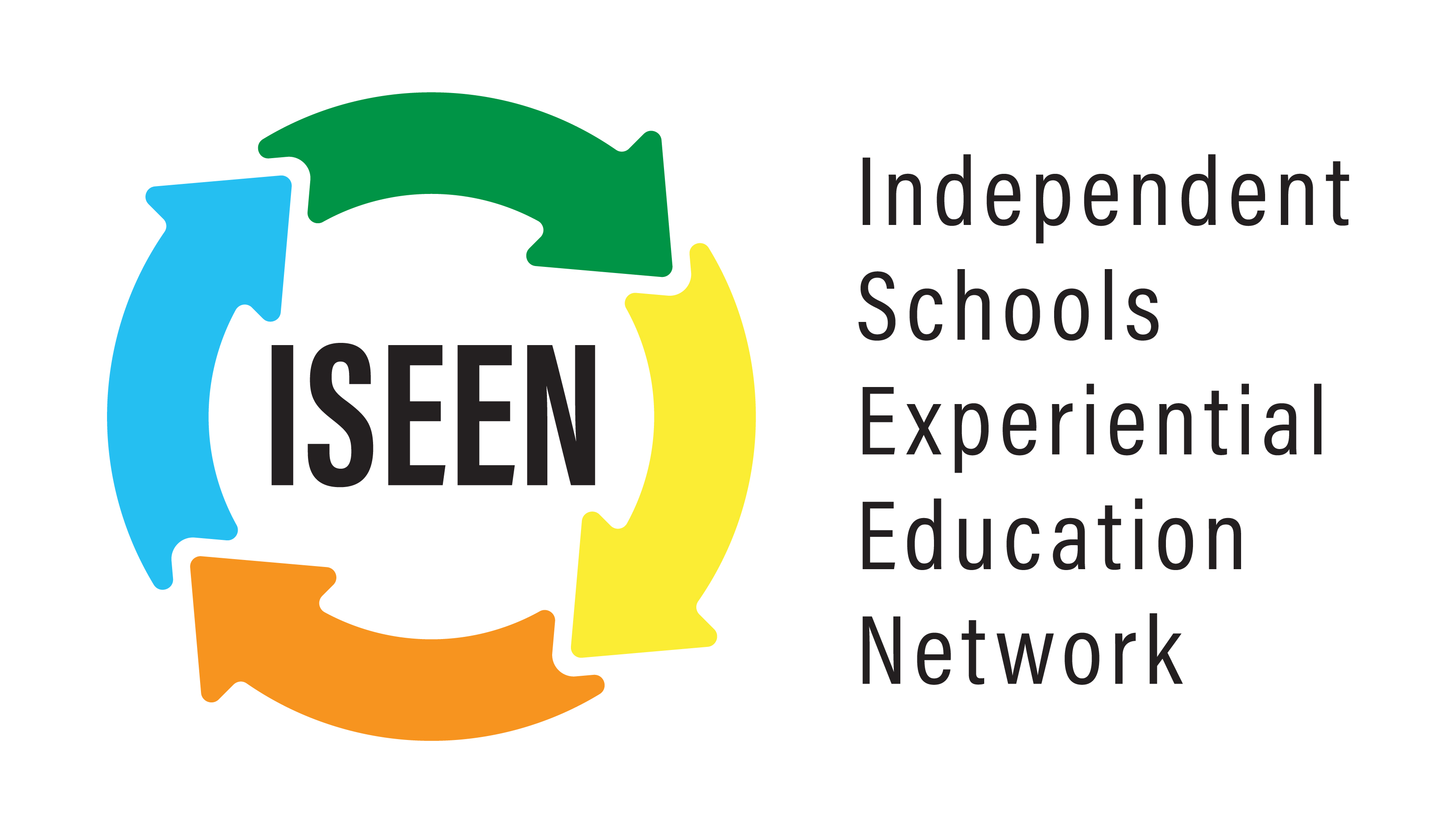
 This immersive day invites educators to explore how nature-based and sustainability-focused learning fosters student agency, community impact, and interdisciplinary connections. The experience begins with a one-mile nature walk alongside Pre-K students on Indian Creek’s 114-acre campus, followed by a visit to the community garden to examine its role in food justice and belonging. Participants will engage in a hands-on Project-Based Learning (PBL) session, designing small-scale, eco-friendly food-growing systems. They'll view final student projects, participate in a Q&A with middle schoolers, and review a high school–led food audit by the Green Club. In the afternoon, educators will volunteer at a local food bank, putting learning into action. Be prepared for moderate physical activity, including lifting and standing. Throughout the day, facilitators will share ways schools can partner with local organizations to enrich curriculum and create community-connected, real-world learning experiences that inspire both students and educators.
This immersive day invites educators to explore how nature-based and sustainability-focused learning fosters student agency, community impact, and interdisciplinary connections. The experience begins with a one-mile nature walk alongside Pre-K students on Indian Creek’s 114-acre campus, followed by a visit to the community garden to examine its role in food justice and belonging. Participants will engage in a hands-on Project-Based Learning (PBL) session, designing small-scale, eco-friendly food-growing systems. They'll view final student projects, participate in a Q&A with middle schoolers, and review a high school–led food audit by the Green Club. In the afternoon, educators will volunteer at a local food bank, putting learning into action. Be prepared for moderate physical activity, including lifting and standing. Throughout the day, facilitators will share ways schools can partner with local organizations to enrich curriculum and create community-connected, real-world learning experiences that inspire both students and educators. Participants will join Key School educators and student leaders on a walking tour of historic Annapolis, replicating an experiential project fifth grade students undertake each year. In their study of Annapolis, students learn about the distinctive Georgian architectural features still visible in Annapolis and about the lives of people who worked and lived in these still-standing buildings. Students consult both primary and secondary source material to research and write speeches about an assigned historical site, the various people associated with it throughout its history, and its present-day legacy in Annapolis.
Participants will join Key School educators and student leaders on a walking tour of historic Annapolis, replicating an experiential project fifth grade students undertake each year. In their study of Annapolis, students learn about the distinctive Georgian architectural features still visible in Annapolis and about the lives of people who worked and lived in these still-standing buildings. Students consult both primary and secondary source material to research and write speeches about an assigned historical site, the various people associated with it throughout its history, and its present-day legacy in Annapolis.
 In this hands-on workshop, participants will explore the rich history of textile arts—especially quilting—as a form of storytelling and social justice. Rooted in Baltimore’s historical landscape, we’ll visit a local museum to engage with art that highlights the intersection of history and civic action. Participants will learn about quilting as a tool for resistance and community-building, then design and sew their own quilt square reflecting a social justice theme, which will be transformed into a personal tote bag or pillow. A student panel will share their 7th grade Freedom Quilt project, connecting abolitionist history to creative expression. The workshop includes time on sewing machines (no experience needed) and models how to integrate museum visits, historical inquiry, and hands-on artmaking into classroom practice. We’ll close with lunch from a local Black-owned restaurant and group reflection on how cross-disciplinary projects can deepen student engagement and elevate diverse narratives.
In this hands-on workshop, participants will explore the rich history of textile arts—especially quilting—as a form of storytelling and social justice. Rooted in Baltimore’s historical landscape, we’ll visit a local museum to engage with art that highlights the intersection of history and civic action. Participants will learn about quilting as a tool for resistance and community-building, then design and sew their own quilt square reflecting a social justice theme, which will be transformed into a personal tote bag or pillow. A student panel will share their 7th grade Freedom Quilt project, connecting abolitionist history to creative expression. The workshop includes time on sewing machines (no experience needed) and models how to integrate museum visits, historical inquiry, and hands-on artmaking into classroom practice. We’ll close with lunch from a local Black-owned restaurant and group reflection on how cross-disciplinary projects can deepen student engagement and elevate diverse narratives. Join us for an immersive journey through Baltimore's rich African American history. This workshop delves into the stories of resilience, resistance, and economic empowerment that shaped the city with a visit to the Baltimore Museum of Industry. We'll explore the lives of individuals like Frederick Douglass and Isaac Myers, who triumphed over systemic oppression, and learn about the enduring legacy of institutions like The Afro-American newspaper. Through interactive discussions and a walking tour around historic Fells Point, we'll examine how African Americans navigated and challenged the complexities of pre-Civil War and post-Civil War America, leaving an indelible mark on Baltimore's industrial and cultural landscape. Discover how their struggles and triumphs continue to resonate today, inspiring us to build a more just and equitable future.
Join us for an immersive journey through Baltimore's rich African American history. This workshop delves into the stories of resilience, resistance, and economic empowerment that shaped the city with a visit to the Baltimore Museum of Industry. We'll explore the lives of individuals like Frederick Douglass and Isaac Myers, who triumphed over systemic oppression, and learn about the enduring legacy of institutions like The Afro-American newspaper. Through interactive discussions and a walking tour around historic Fells Point, we'll examine how African Americans navigated and challenged the complexities of pre-Civil War and post-Civil War America, leaving an indelible mark on Baltimore's industrial and cultural landscape. Discover how their struggles and triumphs continue to resonate today, inspiring us to build a more just and equitable future. In this workshop, participants will learn how to design place-based and experiential learning opportunities by either building curriculum around a specific location or adapting existing classroom content for outdoor settings. Through an overview of Key School’s outdoor education model—including a high school multi-day trip and a middle school Lewis & Clark–themed day trip—educators will explore the process of aligning academic goals with meaningful, real-world experiences. The day includes research and planning time on campus, a guided off-campus trip, and lunch prepared by student leaders in the school’s outdoor kitchen. Be prepared for moderate physical activity, including lifting and standing. Participants will evaluate sample trips, engage in dialogue about teaching complex histories, and consider how to link their own curriculum to local resources or school traditions. You'll have time to reflect on your own curriculum, leaving with actionable ideas and a personalized plan to bring back to your school. One of the most valuable parts of this workshop is the opportunity to critically examine The Key School's experiences, pinpointing both strengths and deficiencies—giving you fresh insights to elevate your own approach.
In this workshop, participants will learn how to design place-based and experiential learning opportunities by either building curriculum around a specific location or adapting existing classroom content for outdoor settings. Through an overview of Key School’s outdoor education model—including a high school multi-day trip and a middle school Lewis & Clark–themed day trip—educators will explore the process of aligning academic goals with meaningful, real-world experiences. The day includes research and planning time on campus, a guided off-campus trip, and lunch prepared by student leaders in the school’s outdoor kitchen. Be prepared for moderate physical activity, including lifting and standing. Participants will evaluate sample trips, engage in dialogue about teaching complex histories, and consider how to link their own curriculum to local resources or school traditions. You'll have time to reflect on your own curriculum, leaving with actionable ideas and a personalized plan to bring back to your school. One of the most valuable parts of this workshop is the opportunity to critically examine The Key School's experiences, pinpointing both strengths and deficiencies—giving you fresh insights to elevate your own approach. Questions. They’re so commonplace we often don’t even think about them. There are a lot of scenarios that require questioning and reflective discussion for students to get the most out of their learning experience. Questions give us insight into their learning moments and help us serve them better. Without questions, students may miss the opportunity to make meaning and transfer skills and perspectives from their learning. They can be used to build connections, foster meaningful conversation, and develop shared strategies in a decision-making process; all of these are important Social and Emotional skills that Outward Bounds aims to empower students with are foundational skills for community action and justice. Come join us for a day filled with hands-on initiatives, low element facilitation, and a hike in Leakin Park; in between our activities, we will dive into questioning theories to best support learning and reflection.
Questions. They’re so commonplace we often don’t even think about them. There are a lot of scenarios that require questioning and reflective discussion for students to get the most out of their learning experience. Questions give us insight into their learning moments and help us serve them better. Without questions, students may miss the opportunity to make meaning and transfer skills and perspectives from their learning. They can be used to build connections, foster meaningful conversation, and develop shared strategies in a decision-making process; all of these are important Social and Emotional skills that Outward Bounds aims to empower students with are foundational skills for community action and justice. Come join us for a day filled with hands-on initiatives, low element facilitation, and a hike in Leakin Park; in between our activities, we will dive into questioning theories to best support learning and reflection. This immersive workshop, in partnership with the Maryland Zoo, offers educators a dynamic, hands-on experience designed to spark curiosity, foster critical thinking, and deepen environmental stewardship. Participants will engage in real-world challenges that highlight the connections between animals, humans, and ecosystems. Activities include using design thinking to create enrichment tools that support natural animal behaviors and solving zoo-based problems that reveal the complexities of animal care, operations, and sustainability. Educators will connect with zoo professionals—from conservationists to animal keepers—and explore behind-the-scenes spaces like the sustainability garden and animal commissary. The day concludes with a reflection session where participants build a toolkit of ideas and pitch collaborative strategies to bring back to their school communities. Centering problem solving, design thinking, and interdisciplinary learning, this workshop equips educators with both inspiration and practical tools to bring real-world, experiential learning into their classrooms.
This immersive workshop, in partnership with the Maryland Zoo, offers educators a dynamic, hands-on experience designed to spark curiosity, foster critical thinking, and deepen environmental stewardship. Participants will engage in real-world challenges that highlight the connections between animals, humans, and ecosystems. Activities include using design thinking to create enrichment tools that support natural animal behaviors and solving zoo-based problems that reveal the complexities of animal care, operations, and sustainability. Educators will connect with zoo professionals—from conservationists to animal keepers—and explore behind-the-scenes spaces like the sustainability garden and animal commissary. The day concludes with a reflection session where participants build a toolkit of ideas and pitch collaborative strategies to bring back to their school communities. Centering problem solving, design thinking, and interdisciplinary learning, this workshop equips educators with both inspiration and practical tools to bring real-world, experiential learning into their classrooms. You have a responsibility to your faculty and students to invest in risk management planning, whether you are running international or wilderness trips, or planning immersive experiences closer to home. Building a comprehensive risk management plan can feel daunting and independent schools face unique needs. Through scenarios, exercises, and reflection work, this workshop will cover essential topics for any independent school running outdoor, international, or immersive programming and will help you identify next steps in developing your school's risk management plan. Topics include evaluating risks of an activity, determining how to manage those risks, and how to communicate those risks to your students, building a health review process to ensure students are ready to take on the rigors of wilderness or international travel or an immersive experience, evaluating your school's medical treatment plans for trips, how to evaluate subcontractors, and emergency and crisis planning.
You have a responsibility to your faculty and students to invest in risk management planning, whether you are running international or wilderness trips, or planning immersive experiences closer to home. Building a comprehensive risk management plan can feel daunting and independent schools face unique needs. Through scenarios, exercises, and reflection work, this workshop will cover essential topics for any independent school running outdoor, international, or immersive programming and will help you identify next steps in developing your school's risk management plan. Topics include evaluating risks of an activity, determining how to manage those risks, and how to communicate those risks to your students, building a health review process to ensure students are ready to take on the rigors of wilderness or international travel or an immersive experience, evaluating your school's medical treatment plans for trips, how to evaluate subcontractors, and emergency and crisis planning. This immersive, street-level workshop invites educators to explore how murals and graffiti can serve as tools for storytelling, resistance, and community identity. Guided by the Nobis Project’s Big Ideas—History, Power, Relationships, Global Citizenship, and Cultural Responsiveness—participants will embark on a mural scavenger hunt through a Baltimore neighborhood, decoding visual narratives and reflecting on whose stories are told or missing.
This immersive, street-level workshop invites educators to explore how murals and graffiti can serve as tools for storytelling, resistance, and community identity. Guided by the Nobis Project’s Big Ideas—History, Power, Relationships, Global Citizenship, and Cultural Responsiveness—participants will embark on a mural scavenger hunt through a Baltimore neighborhood, decoding visual narratives and reflecting on whose stories are told or missing.